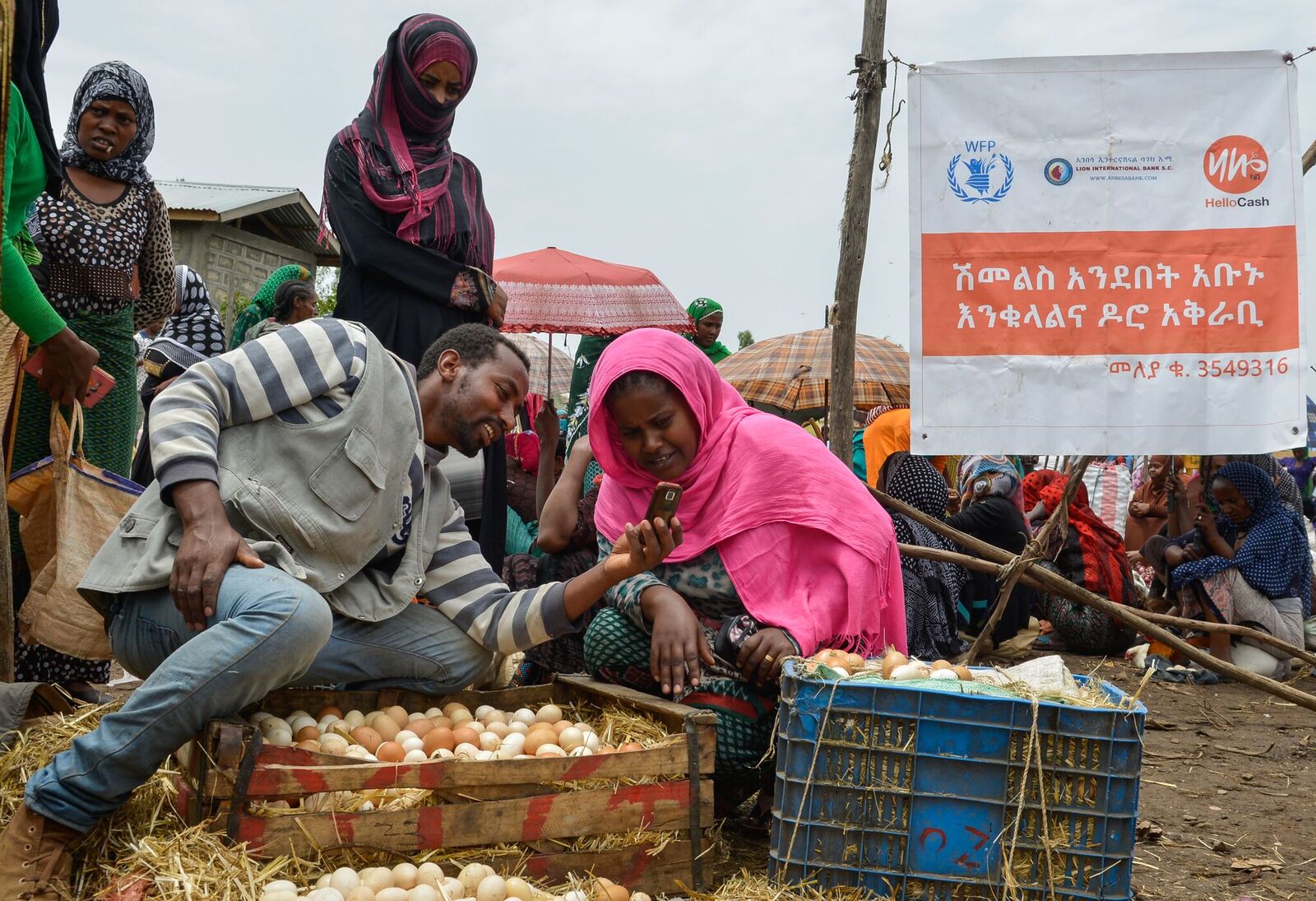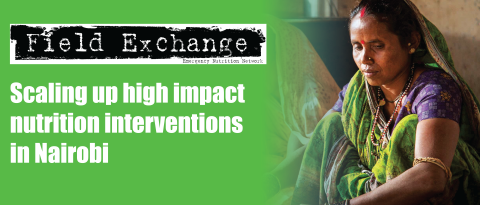Gender dynamics of phone ownership and use in a Fresh Food Voucher scheme in Ethiopia
Research snapshot1
The World Food Programme (WFP) began its Fresh Food Voucher (FFV) programme in three woredas2 in Amhara Region, Ethiopia, in October 2017, to promote consumption of fruits, vegetables and animal-source foods and thereby improve dietary diversity. The programme is based on restricted vouchers that are redeemed through mobile phone payments to fresh-food vendors. Even though a preliminary study suggested otherwise, a few months into the programme beneficiary-monitoring data revealed that some FFV clients did not own a phone or were not accustomed to using one. This led to challenges for some women in redeeming their vouchers at vendors. In response, a study was conducted to understand the dynamics of phone ownership, access to phones and social norms related to phone use and ownership in communities and households participating in the FFV programme. The study took place in Ayo Meda and Hamaro villages and Dire Roka town in Habru woreda, Amhara Region, in 2018.

A total of 75 women and 10 men were interviewed and 18 focus group discussions held with women’s associations, female participants of the FFV programme and their spouses. Results showed that most FFV clients in the two villages, the majority of whom were illiterate or educated to primary level and engaged in farm labour, did not own a phone (72% and 76% of women interviewed in Ayo Meda and Hamaro respectively). A much higher proportion of female participants (64%) owned a phone in urban Dire Roka, where women were more likely to be educated to secondary level and engaged in a broader range of livelihood activities. Most women who did not own a phone borrowed their spouse’s device, while others borrowed phones from friends and family to redeem FFV vouchers. No beneficiaries had missed their FFV entitlement due to the lack of a phone.
Discussion revealed minimal conflict associated with women owning and using mobile phones at community and household levels. Several advantages of providing phones to female FFV clients were identified, including empowerment; increased autonomy and safety; new skills; and access to mobile payment platforms. From WFP’s perspective, benefits of female phone ownership include the ability to reach female FFV participants for programme monitoring and to provide health-promotion messages, and the reduced need for WFP monitors at market/distribution points.
Based on these results, WFP will continue with plans to provide phones as part of the FFV scheme, provided that a risk assessment of all programmatic challenges related to the provision of phones to clients (such as protocols for lost and stolen phones) is completed. In addition, male spouses of FFV clients must be engaged; supporting solar/electric charging facilities in FFV villages should be explored; and partnerships should be built with local women’s groups and associations in support of the programme.
Endnotes
1Akabwai P and Haaij H. (2018) Fresh food vouchers: gender assessment on phone ownership and utilization. Available from: https://www.ennonline.net/resources/genderdynamicsfreshfoodvouchers
2Woredas (districts) are the third-level administrative divisions of Ethiopia. They are further subdivided into a number of wards (kebele) or neighborhood associations, which are the smallest unit of local government in Ethiopia.


